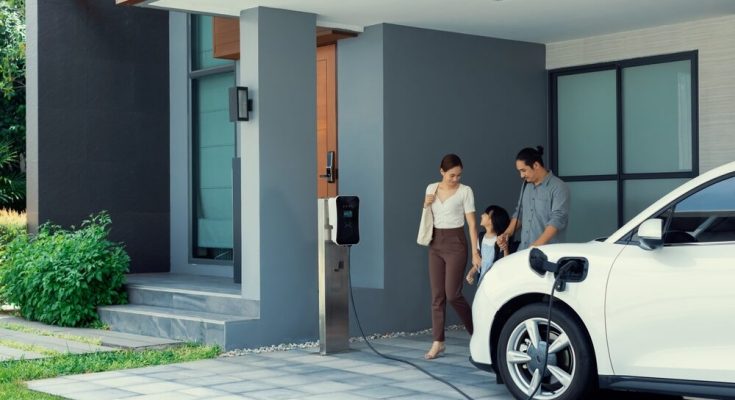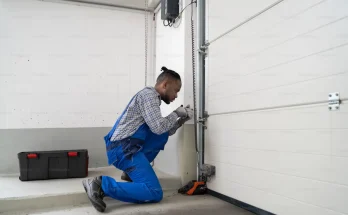The electric vehicle (EV) revolution is no longer on the horizon — it’s happening now. With the UK government phasing out new petrol and diesel cars by 2035, EV adoption is accelerating at an unprecedented pace. However, the real engine behind this shift isn’t just the vehicles — it’s the infrastructure. That’s where domestic EV charging installation and commercial EV charging installation services come into play.
Whether you’re a homeowner preparing your property for the future or a business seeking to support your fleet and customers, reliable EV charging is no longer optional — it’s essential.
Why the UK is Charging Ahead
EV sales in the UK grew by over 40% in 2024 alone, and with generous government incentives, lower running costs, and increased model variety, the momentum is only gaining speed. But for EVs to thrive, convenient and accessible charging infrastructure must keep up.
Installing an EV charger at home or on commercial premises offers not just convenience, but long-term value and future readiness.
Domestic EV Charging Installation: Powering Up at Home
Adomestic EV charging installation involves installing a dedicated EV charger at a private residence — usually on a driveway, in a garage, or mounted to an exterior wall. This is the most practical and cost-efficient way for EV owners to charge their vehicles overnight or during off-peak hours.
Key Benefits for Homeowners
- Convenience at Your Doorstep:
Say goodbye to public charging queues and waiting times. Simply plug in your vehicle when you arrive home and wake up to a fully charged battery. - Lower Electricity Costs:
Charging at home during off-peak hours or using smart tariffs can significantly reduce running costs. - Increase Property Value:
As EV ownership rises, properties equipped with EV charging points are becoming more attractive to potential buyers. - Government Incentives:
While the OZEV (Office for Zero Emission Vehicles) grant for homeowners has ended, certain installations may still be eligible under schemes for flats and rental properties. - Smart Charging Options:
Many home chargers are now Wi-Fi enabled, allowing you to monitor and schedule charging remotely.
What to Expect During Installation
- Site Survey:
An engineer will assess your driveway, wall access, power supply, and desired location. - Charger Type:
Most domestic units are 7kW, offering a full charge in around 6–8 hours. Faster options are available but may require additional power capacity. - Connection and Testing:
Once installed, the charger is connected to your home’s electrical system and fully tested for safety and compliance. - Certification:
You’ll receive an installation certificate (Part P and NICEIC) confirming it meets UK regulations.
Commercial EV Charging Installation: Fueling Business Growth
Acommercial EV charging installation supports the growing demand for workplace, fleet, and public EV charging. Whether you operate a retail park, office block, car dealership, or logistics hub, EV chargers enhance your business offering while promoting sustainability.
Key Benefits for Businesses
- Employee and Customer Satisfaction:
Provide convenient workplace or visitor charging to attract and retain staff, tenants, or patrons. - Fleet Efficiency:
Keep electric vans, taxis, or delivery vehicles charged and operational at all times. - Revenue Opportunities:
Public-facing chargers can generate income through pay-per-use models or partnerships with charging networks. - Sustainability Credentials:
Demonstrate your environmental commitment and boost your ESG performance. - Tax and Grant Support:
The Workplace Charging Scheme (WCS) provides up to £350 per socket (max 40 sockets) for eligible businesses, reducing upfront installation costs.
Types of Commercial Installations
- Fast Chargers (7kW–22kW):
Suitable for long-stay environments like offices or hospitality venues. - Rapid Chargers (50kW+):
Ideal for quick-turnaround sites like service stations, taxi ranks, or logistics depots. - Ultra-Rapid Chargers (100kW+):
Designed for high-demand locations, charging most EVs to 80% in under 30 minutes.
Commercial Use Cases
- Retail & Hospitality:
Encourage longer dwell time and higher spending from EV drivers. - Business Parks & Offices:
Improve employee satisfaction and readiness for green travel initiatives. - Fleets & Transport Hubs:
Maintain control over fuel costs and vehicle uptime. - Residential Developments:
Offer modern amenities for tenants and futureproof your property portfolio.
The Installation Process: Step-by-Step
Whether it’s domestic or commercial EV charger installation, the process typically involves:
1. Consultation and Quote
- Understand your charging needs, vehicle usage, site layout, and grid capacity.
- Get a fixed-price quote based on chosen charger type, cabling, and civil work.
2. Site Survey
- A technical survey assesses electrical load, parking layout, groundworks (if needed), and network connection.
3. Installation
- Qualified engineers install the charging unit(s), connect them to the main power supply, and ensure full compliance with IET Wiring Regulations.
4. Commissioning
- The system is tested, registered (where required), and handed over with operating instructions and support access.
Key Considerations for UK Property Owners and Developers
- Load Management:
Prevent overloading by balancing electricity usage across all charging points. - Smart Charging Compliance:
As per government rules, all new EV chargers must be ‘smart-enabled’ — capable of being scheduled, limited, or remotely controlled. - Future-Proofing:
For commercial sites, consider installing ducting and infrastructure for additional chargers down the line. - Branding and Integration:
Many businesses are choosing branded charger enclosures and app-based interfaces to enhance their customer experience.
Busting the EV Charging Myths
Even with clear benefits, some myths continue to circulate:
- “Home charging is too complex.”
With a professional installer, most domestic installations are completed in a few hours and require no major upgrades. - “It’s only worth it for big companies.”
Small businesses, cafés, and even sole traders can benefit from having a visible commitment to sustainability. - “Public chargers are enough.”
Public infrastructure is improving, but owning a charger means convenience, reliability, and long-term savings. - “You need three-phase electricity for all chargers.”
Not true. Many domestic and smaller commercial units run perfectly on standard single-phase supply.
Why Choose a Professional EV Charging Installer?
In the UK, EV charger installation is a regulated process — and rightly so. Electrical safety, charger compliance, and grid interaction require expert handling.
Here’s why working with a professional installer matters:
- OZEV-Approved:
Enables access to government grants and incentives. - MCS and NICEIC-Certified:
Ensures safe, compliant installations. - Custom Solutions:
Tailored setups based on your current and future needs. - Ongoing Support:
Maintenance, upgrades, and software integration as your needs evolve.
Why Act Now?
- Rising Demand:
More EVs = more pressure on public charging. Take control now before demand outpaces supply. - Lower Installation Costs:
Grants, incentives, and zero VAT on some installations make 2025 the perfect year to act. - Future-Proof Your Property:
With the government mandating EV-ready homes and buildings, early adoption avoids costly retrofits. - Net Zero Goals:
UK businesses and homeowners are central to achieving national carbon reduction targets.
Final Thoughts
The road ahead is electric — and EV charging infrastructure is the backbone of that journey. Whether you’re looking to install a smart home charger for your family car or equip your business with a fleet-ready EV charging solution, taking action now is not just smart — it’s essential.
By investing in a domestic EV charging installation or commercial EV charging installation, you’re not just preparing for the future — you’re helping to build it.




